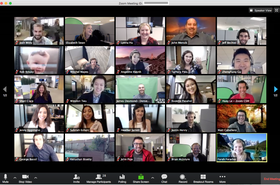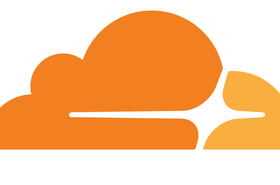Popular videoconferencing platform Zoom experienced an outage this Sunday 17 May for users in the US, Europe, and Middle East.
It is unclear how widespread the issue was, but anecdotal evidence from social media complaints points to a sizeable number of impacted users.
Sunday morning coming down
"We have received reports that some Zoom users may be experiencing issues hosting and joining meetings. Our team is working to identify the root cause and scope of this issue," Zoom said on its status page at 06:42 PDT today.
Fifteen minutes later, the company said the issue was limited to "a subset of users."
By 08:39, "Zoom users impacted by this issue should now be able to host, join, and participate in Zoom Meetings and Zoom Video Webinars if they restart their sessions," the company said. "We will continue to assess this matter that impacted a subset of our users and monitor to ensure no further operational impact."
The peak of the outage appears to have coincided with the launch of Sunday church services, as religions move online amid the ongoing Covid-19 pandemic and subsequent lockdowns.
"My virtual pulpit for the morning," Rev Jason Wells tweeted with an image of an attempt to load the Grace Episcopal Church Morning Prayer. "...just in time for a worldwide Zoom outage?"
"Well, this is one way for pastors to get a Sunday off..." he later said.
Some services were canceled entirely, while others, such as the Mosaic Church of Ann Arbor, quickly shifted to YouTube.
The Post Production World online conference was not as lucky, with the outage impacting some of its live event.
Zoom's boom
In this strange pandemic age, where many are confined to their homes, but expected to keep working, Zoom has thrived. Usage has soared, with the company becoming the defacto standard conference and videochat platform of the Covid-19 era.
This has not been without its difficulties - Zoom suffered an outage early on in the rush to online living, and has been dogged by repeated claims that it was a security risk.
To try to counter mounting security concerns (some legitimate, and some pushed by competitors), the company has rapidly rolled out several security-focused software changes. It also brought former Trump national security adviser H.R. McMaster onto its board, and acquired security firm Keybase.
The company has expanded its physical footprint to meet the increasing load: Much of its backend infrastructure is hosted on Amazon Web Services, and the cloud company is responsible for handling the majority of Zoom's recent growth. But Zoom also uses other cloud providers, including Oracle, and has a significant footprint in colocation data centers. Zoom has publicly confirmed it is an Equinix customer, while DCD understands it also has a significant footprint at Digital Realty facilities.




